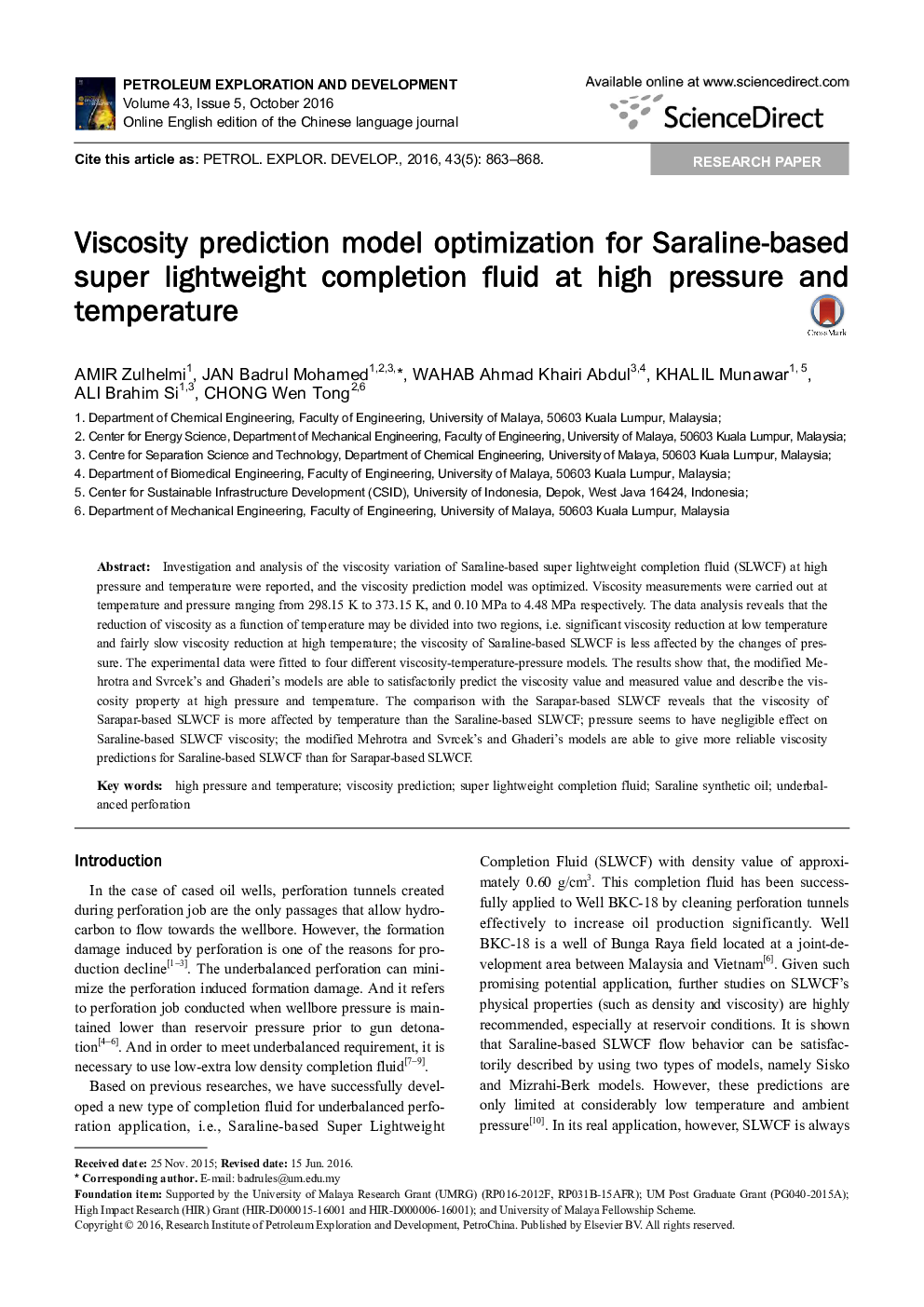| Article ID | Journal | Published Year | Pages | File Type |
|---|---|---|---|---|
| 4719890 | Petroleum Exploration and Development | 2016 | 6 Pages |
Investigation and analysis of the viscosity variation of Saraline-based super lightweight completion fluid (SLWCF) at high pressure and temperature were reported, and the viscosity prediction model was optimized. Viscosity measurements were carried out at temperature and pressure ranging from 298.15 K to 373.15 K, and 0.10 MPa to 4.48 MPa respectively. The data analysis reveals that the reduction of viscosity as a function of temperature may be divided into two regions, i.e. significant viscosity reduction at low temperature and fairly slow viscosity reduction at high temperature; the viscosity of Saraline-based SLWCF is less affected by the changes of pressure. The experimental data were fitted to four different viscosity-temperature-pressure models. The results show that, the modified Mehrotra and Svrcek's and Ghaderi's models are able to satisfactorily predict the viscosity value and measured value and describe the viscosity property at high pressure and temperature. The comparison with the Sarapar-based SLWCF reveals that the viscosity of Sarapar-based SLWCF is more affected by temperature than the Saraline-based SLWCF; pressure seems to have negligible effect on Saraline-based SLWCF viscosity; the modified Mehrotra and Svrcek's and Ghaderi's models are able to give more reliable viscosity predictions for Saraline-based SLWCF than for Sarapar-based SLWCF.
